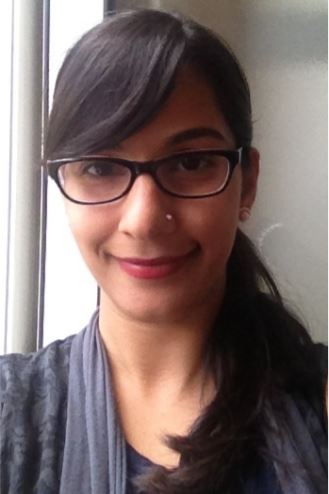We use cookies on this site to enhance your experience.
By selecting “Accept” and continuing to use this website, you consent to the use of cookies.
Search for academic programs, residence, tours and events and more.
April 5, 2023
Print | PDFAs part of Wilfrid Laurier University’s focus on fostering a diverse and inclusive community, the Office of Human Rights and Conflict Management created a role to provide equity-focused support to students, staff, and faculty experiencing systemic and interpersonal forms of harm, which disproportionally impact those from equity-deserving groups.
Humera Javed (BBA '09, BA ‘10, MA '10) holds the role of equity case work and support coordinator within the Office of Human Rights and Conflict Management. Below, Javed discusses her role at Laurier and her passion for embedding equity, diversity and inclusion into higher education.

As a unit, the Office of Human Rights and Conflict Management works to create pathways for everyone at Laurier to access confidential supports and services on campus. Our team helps Laurier faculty, staff and students who have experienced various forms of conflict, harassment, discrimination, bullying, or misapplication of university policy.
In short, we work towards cultivating a working and learning environment at Laurier that is free from identity-based harm, harassment, discrimination, bullying and violence.
I work with students to co-create a plan of action to address their concerns and complaints, improve relationships with those they are in conflict with, and access other supports available on campus. An action plan depends on the situation. It could include coaching to help the student through the conflict, providing support for those who have engaged in harm to understand the impact of their actions, or offering workshops and training sessions to Laurier community members so they feel confident and resourced to navigate conflict and harm.
I also co-facilitate a restorative justice community of practice (RJCOP) with Sarah Scanlon, the associate director of sexual violence response at Laurier. We collaborate on Laurier's restorative justice initiative, which includes facilitating restorative processes, debriefing with other facilitators, supporting the RJCOP, and offering ongoing training about engaging non-punitive accountability as a response to harm.
I have a long-standing passion for equity in higher education and how we can create supportive environments where people, particularly those from equity-seeking groups, can thrive. Prior to this role, I was the equity and inclusion coordinator in the Centre for Student Equity, Diversity and Inclusion at Laurier’s Waterloo campus. My current role allows me to continue to engage in equity work, with a particular focus on experiences of oppression-based harm.
I am also pursuing a doctoral degree in the higher education program at the Ontario Institute for Studies in Education. I am a Laurier alumna with undergraduate degrees in business, global studies and women and gender studies from Laurier, as well as a master’s degree in cultural analysis and social theory.
The service and support that our office provides is confidential and trauma- and violence-informed. We aim to align our work with the goal of cultivating a culture that is grounded in the values of restorative justice that tends to the humanity of people involved, while centering the harm and offering non-punitive opportunities for accountability and repair. An ethic of restorative justice that also shapes this work is to operate from an awareness of how systems of oppression negatively affect people from marginalized communities and to minimize the harm that continues to impact people when navigating support and responses to these experiences.
Students can email humanrights@wlu.ca to connect with me or my team. I would also encourage students to learn more about the Office of Human Rights and Conflict Management by visiting our website.